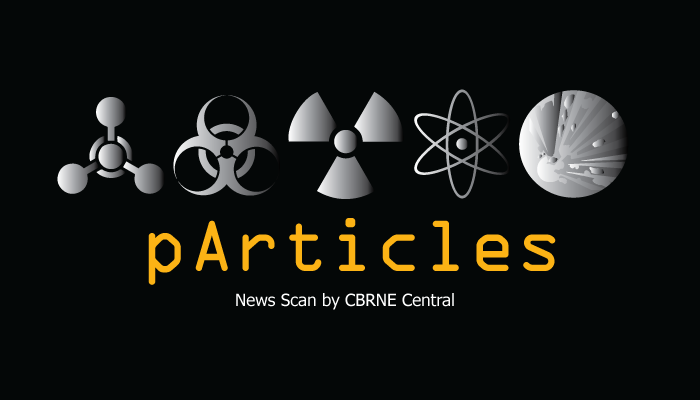Topics in this issue include Anti-IED contracts, EOD robots, nuclear cooperation, and portable SATCOM systems.
In This Article
Army Awards $72M Deal for Saturn Arch Anti-IED Support
The Army has awarded Leidos a $72 million contract to continue support of a five-year-old, airborne geospatial intelligence program that helps neutralize improvised explosive devices on the ground. The one-year deal covers work running through Sept. 16, 2016. Defense Systems >>
Northrop Unveils Next-Generation IED-Fighting Robot
Northrop Grumman and its subsidiary Remotec are unveiling the next generation of the Andros ground robot, earlier versions of which the U.S. military has used for bomb disposal and to help combat improvised explosive devices. Defense Systems >>
U.S. Soldiers to Test Portable Satcom Kit at CBRN Threat Mgmt Drill
U.S. Army personnel will use portable satellite communications equipment to exchange forensic information about various threats during the Network Intergration Evaluation exercise in October. Executive Gov >>
Approaches to Nuclear Cooperation
The U.S. and ROK this spring signed a new bilateral civilian nuclear agreement known as a 123 Agreement, a prerequisite for cooperation and trade in nuclear technologies and resources, after previously being unable to reach an agreement in 2014. With the new agreement, the United States has opened, however slightly, the door to allowing South Korea to expand its nuclear operations, with implications for future nonproliferation efforts. Science & Diplomacy >>
Northrop Unveils Next-Generation IED-Fighting Robot
Northrop Grumman and its subsidiary Remotec are unveiling the next generation of the Andros ground robot, earlier versions of which the U.S. military has used for bomb disposal and to help combat improvised explosive devices. Defense Systems >>
Turkey’s Nuclear Contradictions
Turkey has long advocated creating a nuclear-weapon-free zone in the Middle East as a matter of urgent collective responsibility. However, Ankara has for decades allowed US nuclear weapons to be deployed in Turkish territory. Officials believe these weapons strengthen Washington’s commitment to transatlantic security and contribute to the credibility of extended deterrence. Bulletin of the Atomic Scientists >>
Nuclear Power Can Address Two ‘Existential Threats’, Says Former US Official
The nuclear power industry has a unique role to play in tackling two “existential threats” facing all humanity – climate change and nuclear war, says the man who once served as the COO of the US Department of Energy. World Nuclear News >>


